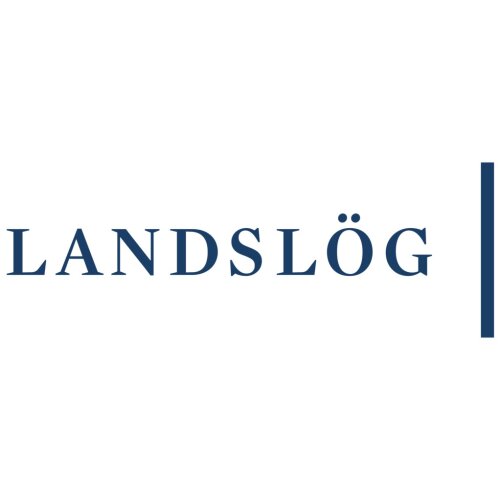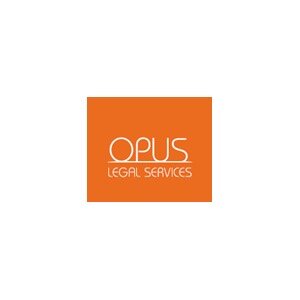Best Tax Lawyers in Iceland
Share your needs with us, get contacted by law firms.
Free. Takes 2 min.
Or refine your search by selecting a city:
List of the best lawyers in Iceland
About Tax Law in Iceland
Tax law in Iceland is governed by a combination of domestic legislation and international agreements. The Icelandic tax system is managed by the Directorate of Internal Revenue, and it functions under the Ministry of Finance and Economic Affairs. The primary taxes include personal income taxes, corporate income taxes, value-added tax (VAT), and property taxes. Tax laws in Iceland are characterized by comprehensive tax agreements signed with multiple countries to prevent double taxation and to ensure transparency and international cooperation.
Why You May Need a Lawyer
There are several situations where you might require legal assistance regarding tax matters in Iceland. A lawyer skilled in tax law can help in navigating complex international tax situations, understanding corporate tax obligations, and resolving disputes with the tax authorities. If you're facing audits, penalties, or prosecution for alleged tax evasion, legal counsel can provide critical guidance. Furthermore, individuals and businesses might need assistance in optimizing tax liabilities, filing appeals, or obtaining clarity on the interpretations of tax laws.
Local Laws Overview
Key aspects of local laws relevant to tax in Iceland include the income tax rates, which are progressive for individuals and flat for corporations. The standard VAT rate is 24%, with reduced rates for essentials like food. Iceland has signed various treaties to eliminate double taxation, providing relief for residents and non-residents conducting business. Additionally, specific rules pertain to capital gains, inheritance taxes, and duties associated with property transactions. Understanding local laws about pension taxation and foreign income inclusion is crucial for anyone living or doing business in Iceland.
Frequently Asked Questions
What is the personal income tax rate in Iceland?
The personal income tax rate in Iceland is progressive, comprising both state and municipal taxes. The rates can range from approximately 35.04% to 46.24% depending on income levels and location.
How is corporate tax structured in Iceland?
The corporate income tax rate in Iceland is set at 20% for limited liability companies. Partnerships and sole proprietorships are taxed based on personal income tax rates.
What is the VAT rate in Iceland?
The standard VAT rate in Iceland is 24%. There are also reduced rates that apply to specific services and goods, such as a 11% rate on accommodation and certain food items.
Are there any tax treaties Iceland is part of?
Yes, Iceland has signed numerous double taxation treaties with countries around the world to prevent individuals and businesses from being taxed twice on the same income.
What should I do if I disagree with a tax assessment?
If you disagree with a tax assessment, you can appeal the decision. It is advisable to engage with a lawyer who specializes in tax law to ensure that your case is presented effectively.
How are capital gains taxed?
Capital gains are taxed at a rate of 22% for individuals. This applies to gains made from the sale of shares or securities, and investments.
Is foreign income taxable in Iceland?
Residents of Iceland are taxed on their worldwide income, which includes foreign income. However, there are provisions under the double taxation treaties to mitigate the tax burden.
What are the inheritance tax rules?
Inheritance tax in Iceland is levied at progressive rates depending on the relationship to the deceased. Spouses are exempt from inheritance tax, while others may be taxed at rates up to 10%.
How does Iceland handle tax evasion?
Tax evasion is taken seriously, with substantial penalties, interest on the delayed taxes, and possible criminal prosecution. Cooperation with international standards on transparency and exchange of information is a key focus.
What is the procedure for tax filing for self-employed individuals?
Self-employed individuals must file an annual tax return and pay taxes on their net income. Specific deductions and business expenses may be claimed to reduce taxable income.
Additional Resources
The Directorate of Internal Revenue is a key governmental resource for tax information and assistance. Other helpful organizations include the Ministry of Finance and Economic Affairs and professional bodies like the Icelandic Bar Association, which can offer guidance on legal representation.
Next Steps
If you require legal assistance in tax matters, consider consulting with a specialized tax lawyer or accountant. You can start by contacting legal firms that offer tax law expertise or searching through directories provided by the Icelandic Bar Association. Always ensure that your chosen advisor has a thorough understanding of Icelandic and international tax law, particularly if your situation involves cross-border issues.
Lawzana helps you find the best lawyers and law firms in Iceland through a curated and pre-screened list of qualified legal professionals. Our platform offers rankings and detailed profiles of attorneys and law firms, allowing you to compare based on practice areas, including Tax, experience, and client feedback.
Each profile includes a description of the firm's areas of practice, client reviews, team members and partners, year of establishment, spoken languages, office locations, contact information, social media presence, and any published articles or resources. Most firms on our platform speak English and are experienced in both local and international legal matters.
Get a quote from top-rated law firms in Iceland — quickly, securely, and without unnecessary hassle.
Disclaimer:
The information provided on this page is for general informational purposes only and does not constitute legal advice. While we strive to ensure the accuracy and relevance of the content, legal information may change over time, and interpretations of the law can vary. You should always consult with a qualified legal professional for advice specific to your situation.
We disclaim all liability for actions taken or not taken based on the content of this page. If you believe any information is incorrect or outdated, please contact us, and we will review and update it where appropriate.
Browse tax law firms by city in Iceland
Refine your search by selecting a city.
















